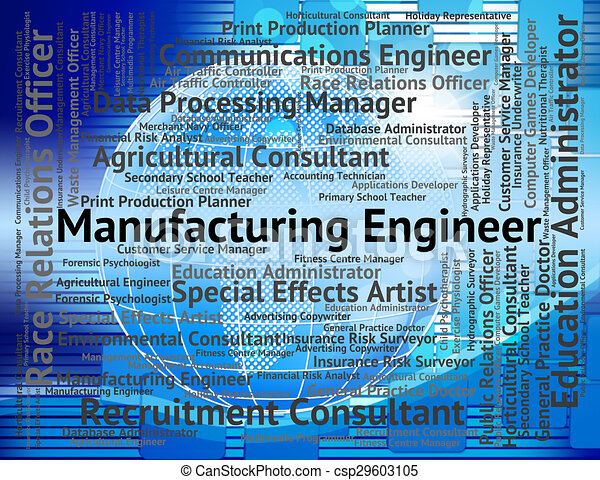
Tampa has many logistics jobs. There are many logistics jobs in Tampa. Some of them can be found in manufacturing, construction and healthcare. Others may work for wholesalers or consulting firms who help businesses streamline their supply chain.
A degree in logistics can open up a number of career opportunities. An associate degree can help you find entry-level roles such as shipping clerks. However, bachelor's level jobs are reserved for those with a higher education. You may decide to specialize in one area of logistic, such as warehouse management or supply chain.
BLS statistics predict that jobs for logistics professionals will increase by 5 percent between 2018-2028. It is predicted that professionals focusing on business operations will see greater job growth.
A four-year college or community college can offer a degree in logistics. These programs typically offer a range of logistics concentrations, so you can build specialized skills and become more employable as you move up the career ladder.

Along with pursuing a Bachelor's Degree, students should take part in networking and internship opportunities. These experiences provide valuable hands-on training in the field and may help you secure your first logistics role.
The logistics industry is a very diverse field, with good job prospects. You can find logistics jobs throughout the country, particularly in states that are large and growing, like California and Texas. You can also find careers in a number of specific sectors, such as aerospace and oil and gas.
Consider the size and capability of a company when selecting a logistics service. The ideal 3PL is one that can customize a solution to fit your specific business needs. This will enable you to lower your overall costs while increasing your efficiencies.
The success of your company is dependent on the supply chain. It is essential that you have the right team and the right equipment to make sure your products are delivered on time and in perfect shape. You can improve the efficiency of your supply chain by selecting a third-party logistics provider that has expertise in your industry and can deliver the goods on time, every time.
Sheer, a full-service 3PL based in Tampa, can increase the efficiency and speed of your supply chain as well as reduce your costs. We provide our customers with a range services including inventory management, transportation and shipping.

We provide you with a set of technology tools for tracking and managing your supply chains. Our cloud-based system integrates with your existing ERP, allowing you to easily monitor and control your entire business.
Sheer's multimodal network can transform your supply chains from liabilities to assets. You can count on Sheer to deliver your goods safely, on time and every time.
FAQ
How can we improve manufacturing efficiency?
First, identify the factors that affect production time. The next step is to identify the most important factors that affect production time. If you aren't sure where to begin, think about the factors that have the greatest impact on production time. Once you have identified them, it is time to identify solutions.
What is the job of a logistics manger?
A logistics manager ensures that all goods are delivered on time and without damage. This is accomplished by using the experience and knowledge gained from working with company products. He/she also needs to ensure adequate stock to meet demand.
What can I do to learn more about manufacturing?
Experience is the best way for you to learn about manufacturing. If that is not possible, you could always read books or view educational videos.
Why is logistics important in manufacturing?
Logistics are an integral part any business. They are essential to any business's success.
Logistics plays a significant role in reducing cost and increasing efficiency.
Statistics
- According to a Statista study, U.S. businesses spent $1.63 trillion on logistics in 2019, moving goods from origin to end user through various supply chain network segments. (netsuite.com)
- In 2021, an estimated 12.1 million Americans work in the manufacturing sector.6 (investopedia.com)
- In the United States, for example, manufacturing makes up 15% of the economic output. (twi-global.com)
- [54][55] These are the top 50 countries by the total value of manufacturing output in US dollars for its noted year according to World Bank.[56] (en.wikipedia.org)
- It's estimated that 10.8% of the U.S. GDP in 2020 was contributed to manufacturing. (investopedia.com)
External Links
How To
How to use lean manufacturing in the production of goods
Lean manufacturing is a management style that aims to increase efficiency and reduce waste through continuous improvement. It was developed in Japan between 1970 and 1980 by Taiichi Ohno. TPS founder Kanji Tyoda gave him the Toyota Production System, or TPS award. Michael L. Watkins published the original book on lean manufacturing, "The Machine That Changed the World," in 1990.
Lean manufacturing refers to a set of principles that improve the quality, speed and costs of products and services. It emphasizes eliminating waste and defects throughout the value stream. Lean manufacturing is called just-in-time (JIT), zero defect, total productive maintenance (TPM), or 5S. Lean manufacturing seeks to eliminate non-value added activities, such as inspection, work, waiting, and rework.
Lean manufacturing can help companies improve their product quality and reduce costs. Additionally, it helps them achieve their goals more quickly and reduces employee turnover. Lean manufacturing is considered one of the most effective ways to manage the entire value chain, including suppliers, customers, distributors, retailers, and employees. Many industries worldwide use lean manufacturing. Toyota's philosophy is the foundation of its success in automotives, electronics and appliances, healthcare, chemical engineers, aerospace, paper and food, among other industries.
Five principles are the basis of lean manufacturing:
-
Define value - Find out what your business contributes to society, and what makes it different from other competitors.
-
Reduce waste - Stop any activity that isn't adding value to the supply chains.
-
Create Flow. Ensure that your work is uninterrupted and flows seamlessly.
-
Standardize and Simplify – Make processes as consistent, repeatable, and as simple as possible.
-
Build Relationships- Develop personal relationships with both internal as well as external stakeholders.
Lean manufacturing, although not new, has seen renewed interest in the economic sector since 2008. Many companies have adopted lean manufacturing methods to increase their marketability. Some economists even believe that lean manufacturing can be a key factor in economic recovery.
Lean manufacturing is now becoming a common practice in the automotive industry, with many benefits. These include improved customer satisfaction, reduced inventory levels, lower operating costs, increased productivity, and better overall safety.
It can be applied to any aspect of an organisation. Because it makes sure that all value chains are efficient and effectively managed, Lean Manufacturing is particularly helpful for organizations.
There are three types principally of lean manufacturing:
-
Just-in-Time Manufacturing: Also known as "pull systems", this type of lean manufacturing uses just-in-time manufacturing (JIT). JIT refers to a system in which components are assembled at the point of use instead of being produced ahead of time. This approach aims to reduce lead times, increase the availability of parts, and reduce inventory.
-
Zero Defects Manufacturing: ZDM ensures that no defective units leave the manufacturing plant. If a part needs to be fixed during the assembly line, it should be repaired rather than scrapped. This also applies to finished products that need minor repairs before being shipped.
-
Continuous Improvement (CI), also known as Continuous Improvement, aims at improving the efficiency of operations through continuous identification and improvement to minimize or eliminate waste. Continuous improvement refers to continuous improvement of processes as well people and tools.